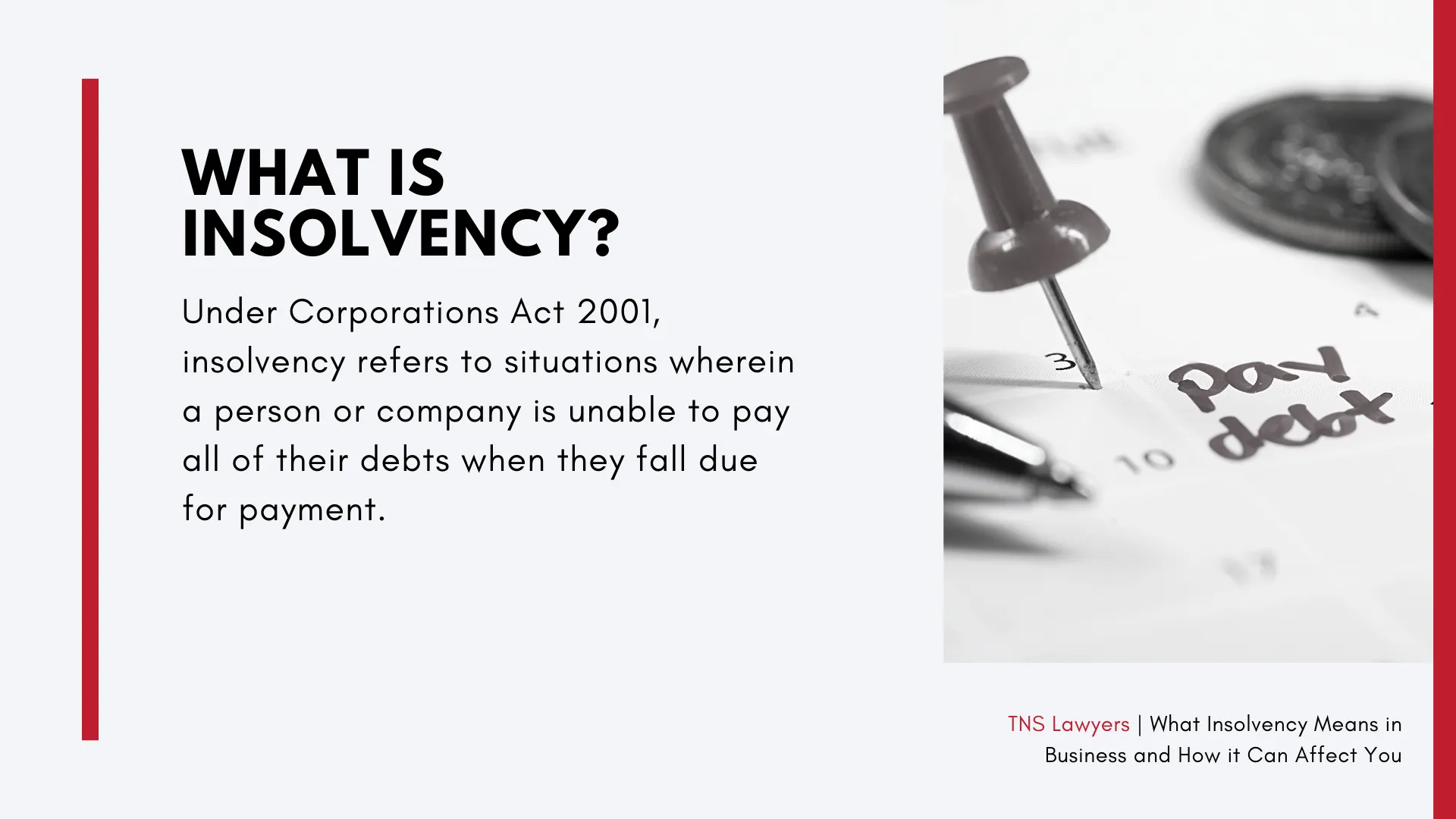Some Known Incorrect Statements About Insolvency Practitioner
Table of ContentsWhat Does Insolvency Practitioner Do?Getting My Insolvency Practitioner To WorkThe Single Strategy To Use For Insolvency PractitionerIndicators on Insolvency Practitioner You Should Know10 Simple Techniques For Insolvency PractitionerThe Facts About Insolvency Practitioner RevealedMore About Insolvency Practitioner
Insolvency is when obligations are above the worth of the business, or when a borrower can not pay the financial obligations they owe. A business can come to be insolvent because of a variety of situations that cause inadequate cash circulation. When faced with insolvency, an organization or person can call lenders directly and restructure debts to pay them off.Service owners may contact creditors straight and restructure financial debts right into more manageable installments. Lenders are normally open to this strategy because they want to be settled and stay clear of losses, even if the repayment is on a postponed routine.
A Biased View of Insolvency Practitioner
The proprietor creates a proposal outlining exactly how the financial debt might be restructured using price reductions or other plans for assistance. The proposal reveals creditors just how the service might create enough cash money flow for profitable operations while paying its financial debts. Typically, a forgiven financial obligation might be considered revenue by the Irs (INTERNAL REVENUE SERVICE).

Not known Factual Statements About Insolvency Practitioner
Business may finish up paying huge amounts of cash in problems and be incapable to continue procedures. When procedures stop, so does the firm's earnings. Absence of earnings causes unsettled expenses and financial institutions requesting money owed to them. Some firms become bankrupt due to the fact that their products or services don't evolve to fit consumers' transforming demands.
Costs surpass revenues and bills stay unsettled. Kinds of insolvency include cash-flow insolvency and balance-sheet insolvency. Cash-flow bankruptcy happens when a firm has the possessions to cover their financial debts but they remain in the wrong type, such as realty rather than fluid funds. Balance-sheet insolvency, on the various other hand, shows a lack of assets in any kind of type to cover debts.
The IRS states that an individual is bankrupt when the total responsibilities go beyond overall properties. A insolvency, on the other hand, is a real court order that shows just how an insolvent individual or business will certainly repay their creditors, or how they will certainly market their assets in order to make the settlements.
Things about Insolvency Practitioner

Understanding the factors that can lead to bankruptcy, such as overspending, can help you avoid insolvency and its repercussions.
All about Insolvency Practitioner
It is well known that directors and police officers of companies (and supervisors of restricted obligation companies) owe fiduciary duties to their organizations and their investors (or members). These fiduciary responsibilities are specified by state statutes and, though there are variations from state to state, they typically consist of a task of loyalty and an obligation you can try here of treatment.
The task of care requires directors and policemans to exercise diligence, to make enlightened decisions, and to act in excellent confidence to make sure that their activities remain in the very best rate of interest of the company. Beyond the extent of this discussion, some states allow these obligations to be restricted either by so noting in the organizational records or conforming with other demands.
An Unbiased View of Insolvency Practitioner
The majority of states define bankruptcy in two means( 1) when a firm's liabilities come to be above the amount of its properties or (2) when the company becomes unable to pay its financial obligations as they come to be dueand accept both interpretations (Insolvency Practitioner). The shift in obligations takes place due to the fact that when a company is bankrupt, there is no value in the company past that owed to the company's creditors to make sure that the equity owners no much longer have a financial stake in the firm
Be careful about giving investors favoritism at the cost of creditors (e.g., accrediting and funding a returns or a stock redemption). Beware regarding advantageous therapy between courses of investors. Make sensible efforts to find out all the realities prior to taking a particular strategy; directors should really think that any kind of decisions made are in the very best passions of the company in its whole (i.e., choices will be examined in hindsight in light of the result of such actions on the corporation).
In any type of bankruptcy or insolvency case, payments made to certain creditors at the expense of various other creditors can be clawed back, especially if there is some link in between the company and the lender. Consider recommending at a yearly investor conference (or any kind of other meeting of stockholders) click this link a resolution affirming that all previous company choices and activities taken by the directors and police officers of the firm were taken in excellent faith after a workout of sensible care.
Unknown Facts About Insolvency Practitioner
Fully disclose any personal or organization relationships with parties beyond of purchases entailing the firm to prevent the appearance of a dispute of interest. In evaluating prospective fund increasing deals or a sale of assets of the distressed firm, know that these deals might be inspected later in light of any succeeding development of supervisors' fiduciary obligations to include financial institutions.